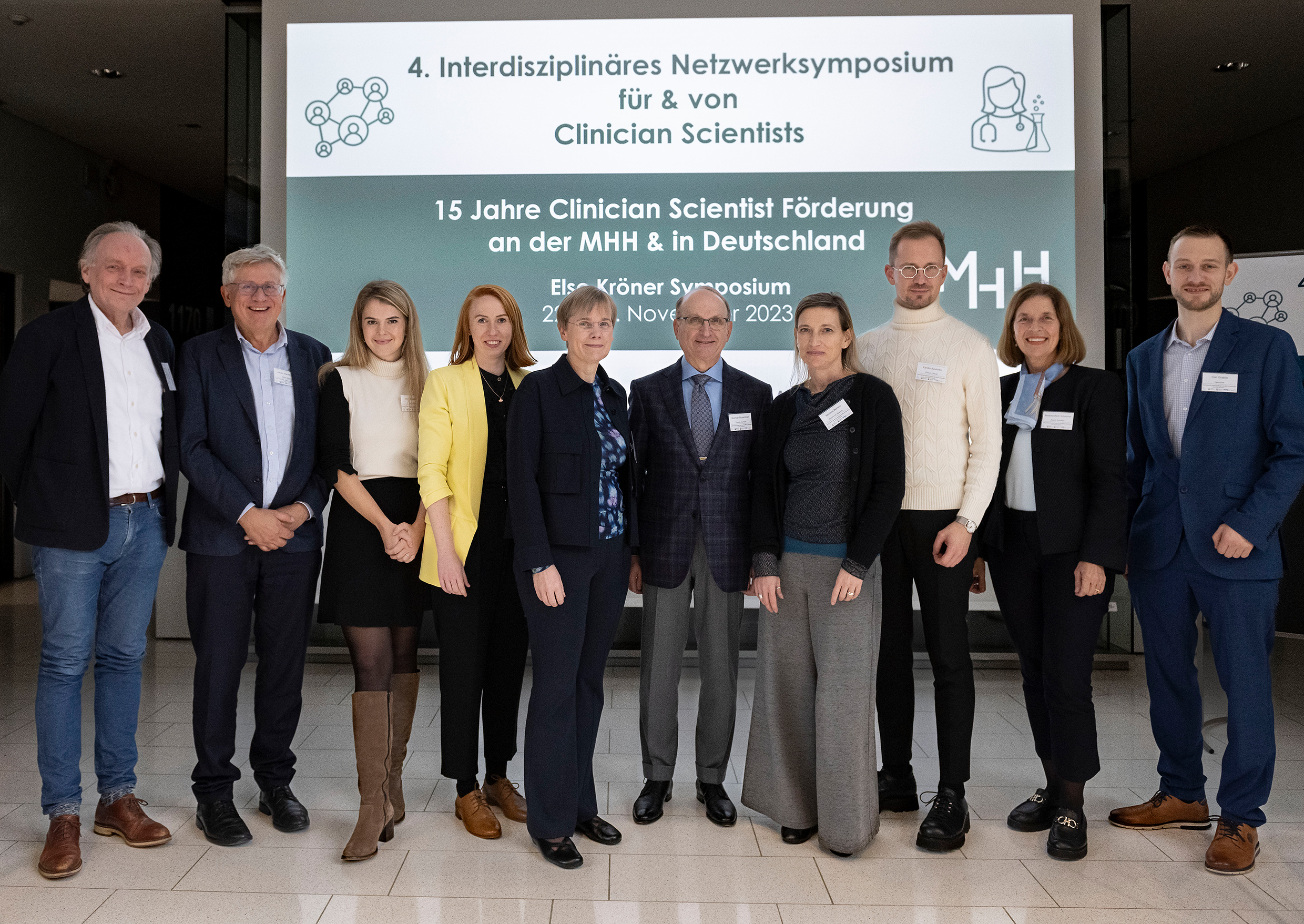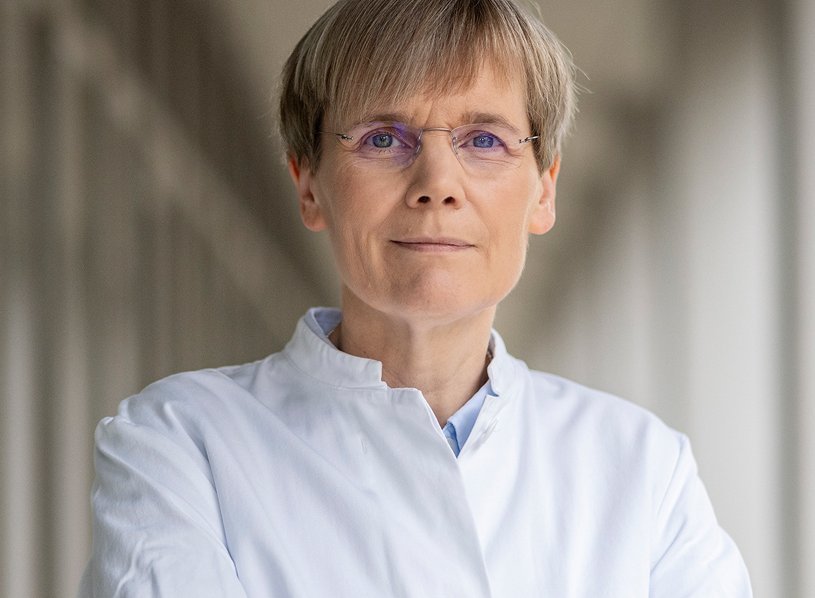MHH Dean of Academic Career Development advocates targeted further development of structured support programmes for researching doctors.

Copyright: Angelika Zwick

Prof Dr Dr Anette Melk, Dean of Academic Career Development at the MHH. Copyright: Angelika Zwick
Researching doctors, known as clinician scientists, bring urgent clinical questions from the bedside to the laboratory - and the answers back to the bedside. Their findings actively contribute to the improvement of diagnostics and therapy. Clinician scientists are therefore fundamental to medical progress. At the same time, increasingly complex medicine and greater economic pressure in clinics mean that many doctors are opting for a purely clinical career rather than a career as a clinician scientist. In order to break this trend, structured support programmes for clinician scientists have been developed at many universities. Researching physicians at Hannover Medical School (MHH) are now calling for these efforts to be intensified and for the professional field of clinician scientists to finally be recognised, thereby strengthening their key role in the long term.
MHH was the first university institution to launch a structured support programme in 2008
In 2008, the MHH was the first university institution in Germany to launch a structured support programme within the Integrated Research and Treatment Centre for Transplantation (IFB-Tx), funded by the Federal Ministry of Education and Research (BMBF), in order to specifically support scientifically talented doctors and provide them with protected research time during their medical specialist training. The MHH has used this pilot project over the past 17 years to further develop the structures and define measures that support the wide range of skills required for a clinical-scientific career in translational medicine. Two years ago, the MHH set up its own Dean's Office for Academic Career Development under the leadership of paediatric nephrologist and Professor of Interdisciplinary Transplantation Medicine Dr Anette Melk.
Scientific symposium prompts publication in Nature Medicine
In order to discuss the requirements and challenges of effective clinician scientist programmes, the MHH invited national and international clinician scientists as well as other experts from society and politics to a highly regarded symposium at the end of 2023. Together with some of these scientists, Professor Melk has now published a commentary in the renowned journal Nature Medicine. In it, they suggest solutions as to which measures in programmes can help to promote clinician scientists. In addition to a strong institutional commitment with recognition and rewards for achievements, contractually secured and protected research time and long-term career planning, these include conceptual measures such as coordination between the stakeholders involved, the expansion of international exchange programmes, the involvement of patients in research work and the provision of resources.
The value of the investment is also reflected in the increasing number of publications and third-party funding
"Clinician scientists are indispensable for the future of medicine. Recognising them as a profession would strengthen the importance of the key role of clinician scientists at the interface between clinical practice and research in the long term," explains Professor Melk. The selection of clinician scientists and the goals set in the MHH's own programmes take into account various qualitative characteristics for evaluating performance in research, clinical practice and teaching in accordance with the European CoARA guidelines. In addition to many qualitative successes, the value of these investments is also reflected in quantitatively measurable successes: Both the number of publications and the acquisition of third-party funding by clinician scientists are continuously increasing. "The fact that it is worth investing in these measures is shown in particular by the third-party funding acquired, which exceeds the programme costs invested by a factor of five," the publication states. The authors see this as a strong argument for the further expansion of programme capacities at universities.